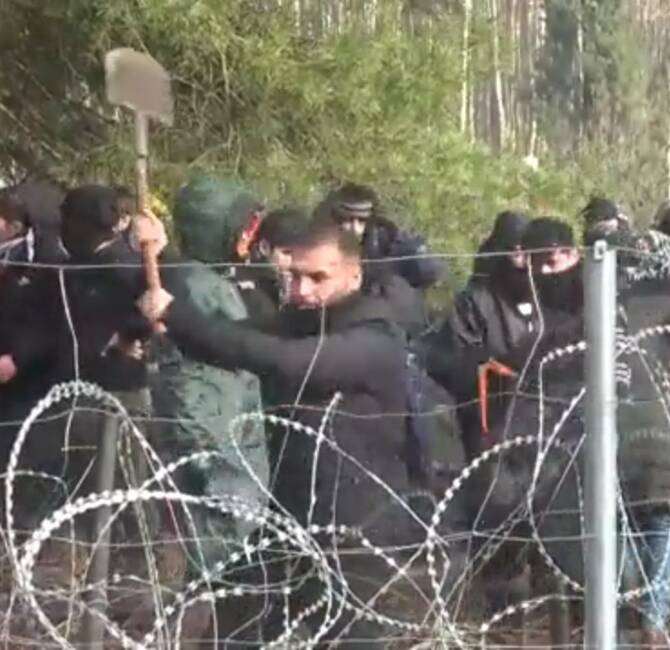Central Europe – To mark the end of Slovakia’s presidency of the Visegrád Group before handing it over to Czechia, Slovakia’s Prime Minister, Ľudovít Ódor, welcomed his V4 counterparts to Bratislava for a summit on immigration last Monday at a time when Brussels is once again seeking to impose migrant quotas on all European Union countries.
Hungary’s Viktor Orbán and Poland’s Mateusz Morawiecki in particular are on the same wavelength concerning relocation under the guise of “compulsory solidarity”, as they both staunchly reject the European Commission’s plans to relocate illegal immigrants seeking asylum once they have arrived on European soil. After the summit, the Polish PM declared: “The V4 countries have risen to the challenge when it comes to taking in war refugees, and that is why the topic of the approach to migration unites us closely today. (…) We show very clearly that it is the external borders of the European Union that should be protected,
That you cannot support smuggling organizations, people smugglers, because it is absolutely immoral; and you cannot, at the same time, support terrorist organizations. (…)
We do not agree to any quotas, or to any allocations of migrants, and we state very clearly that Europe must have mechanisms to protect itself from external migration.”
Viktor Orbán fully agreed with him, as he insisted that “there is a solution to migration, but the EU doesn’t want to implement it”, saying also:
“If we said that only people who have followed the procedure and received authorization from a member state to enter the EU would be allowed to do so, we’d be out of this mess. (…)
It has to be said that the whole proposal as it stands is unserious on the part of the Commission and, in Hungary’s view, unsuitable for negotiation in this form.”
Meanwhile, Slovak Prime Minister Ľudovít Ódor stressed the need to communicate with migrants’ countries of origin and transit, as well as to protect Europe’s borders more effectively, while Czechia’s Petr Fiala pointed out that migrant quota systems do not work.
The Polish Prime Minister summed up the fruitful cooperation between the four Central European countries as follows: “We don’t focus on our differences, but try to find what unites us, what strengthens our countries, what makes 1+1+1+1 equal 5 or 6.
This allows us to make our voice better heard in Brussels, and to be heard more clearly and listened to at international level.”




